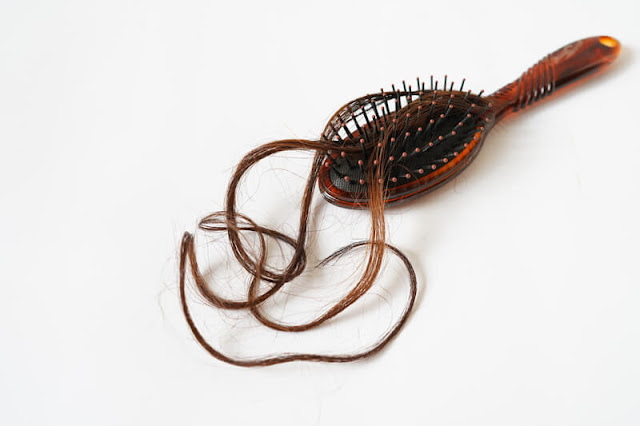The research found Hair loss is related to intestinal flora
We all know that there are many causes of hair loss, but we never thought that the culprit of hair loss is intestinal flora. Scientists have pointed out that the analysis of the metabolites of the gut microflora is essential to understand how they affect human health, and that these metabolites can regulate the function of the immune system and the central nervous system.
Metabolite analysis refers to the study of small molecules (metabolites) in biological systems, including cells, tissues, and organisms. It aims to identify, quantify, and understand the metabolic pathways, changes in metabolite levels, and relationships between metabolites and biological processes. Techniques used for metabolite analysis include NMR spectroscopy, mass spectrometry, and HPLC. The goal is to gain insights into biological function and identify markers for disease diagnosis and treatment.
Gut microbes have a potential impact on human health, such as the corresponding changes in the gut microflora following the administration of a drug. Analysis of changes in the gut microflora and its corresponding metabolites induced by antibiotic drugs can provide insight into the acute and chronic effects of antibiotic drugs and can provide a better understanding of the link between gut microbial metabolites and the health status of the organism. Medicilon can provide clients with drug metabolite analysis services, including in vitro drug metabolism studies and in vivo drug metabolism and pharmacokinetics studies.
The human gut is home to 10 trillion bacteria, which are seemingly insignificant but powerful, and are essential for maintaining homeostasis in the host body, especially in the gastrointestinal tract. Recently, there is new evidence that intestinal flora also contributes to physiological regulation outside the gut, including the liver, lungs, skin, and brain, and that its imbalance may lead to disease progression in individuals.
The researchers selected mice for the experiment, and at the beginning of the experiment, they gave both germinated and germ-free groups of mice diets with and without biotin but did not see signs of hair loss. They then repeated the experiment, only this time with the difference that they gave the mice a prolonged dose of antibiotics to disrupt the balance of the intestinal flora. As expected, they found that the intestinal flora was out of balance after the antibiotic treatment, and the mice soon developed mild hair loss.
And when they fed the bacteria-free mice with lactobacilli, they found that the hair loss became more severe and the mice became almost completely bald. They then conducted a controlled trial, feeding normal mice and mice without bacteria in their bodies normal levels of biotin, but with the addition of Lactobacillus, these mice did not lose their hair at all. The results were enough to prove that Lactobacillus is an important factor in hair loss.
So, how exactly does gut flora cause hair loss?
The intestinal flora in our body produces many important micronutrients such as biotin, vitamin K, vitamin B12, nicotinic acid, and folic acid. Biotin (vitamin B7), which comes from mushrooms and soybeans, is a water-soluble vitamin whose deficiency affects skin health and can also lead to hair loss. Biotin deficiency is commonly seen in common diseases such as celiac disease and also in pregnant women.
In this experiment, Lactobacillus rhamnosus expanded after antibiotic treatment. This bacterium does not produce biotin and also causes biotin deficiency, which subsequently then leads to hair loss.
This finding excited the researchers, and it amply demonstrates that gut flora as well as diet can affect hair loss and that it is entirely possible to treat hair loss by manipulating the composition of the gut microbiota, such as direct biotin injections and designing probiotic dietary supplements. But the researchers are still cautious: the effect of bacteria on the skin cannot be ruled out yet.
It seems that the relationship between hair loss and intestinal flora is inextricably linked, and the study is nothing less than a boon for hair loss sufferers, and it may only be a matter of time before they get rid of their hair loss woes.




Comments
Post a Comment